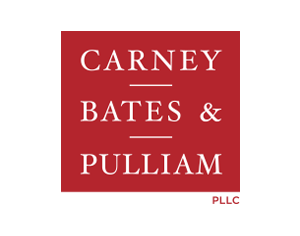Numerous federal and state laws protect and reward those who report corporate wrongdoing. These private citizens, called “whistleblowers” or “relators,” play an essential role in combating fraud and protecting society from the damage caused by unethical business practices. Numerous provisions across a wide array of statutory schemes reward and protect these individuals for coming forward to help the government reclaim its money.

Whistleblower Claims
In order to take full advantage of these statutes, and to protect oneself from possible risk, it is essential for a prospective whistleblower to have legal representation before coming forward with a claim. Carney Bates & Pulliam has a dedicated team of lawyers who will help ensure that your claim is competently and efficiently prosecuted, that you receive all of the protections available to you under the whistleblower laws, and that you receive the maximum reward available to you.
The SEC Whistleblower Program
The Dodd-Frank Wall Street Reform and Consumer Protection Act (“Dodd-Frank”) has expanded the area of law incentivizing the reporting of securities fraud by corporate insiders, providing inducements and protections that reach significantly farther than other statutes traditionally governing whistleblower actions, such as the False Claims Act (“FCA”) or the Sarbanes-Oxley Act (“Sarbanes-Oxley”).
Dodd-Frank amends the Securities Exchange Act of 1934, adding a new section stating that where a whistleblower provides original information that is integral to the successful resolution of an SEC enforcement action, and the action draws a monetary sanction of $1,000,000 or more, the whistleblower will receive an award of 10-30% of the sanctions imposed. Dodd-Frank also provides a private right-of-action for whistleblowers who are the targets of employer retaliation, with remedies including reinstatement, two times back-pay, and compensation for litigation costs, attorneys’ fees, and expert fees.
While bounties and protection from employer retaliation are found in comparable legislation like the FCA or Sarbanes-Oxley, Dodd-Frank provides one exceedingly powerful protection that was previously lacking in similar statutes: it guarantees the anonymity of the whistleblower.
Where the party furnishing information wishes to remain anonymous, he or she must be represented by counsel, who then acts as a liaison with the SEC, even submitting the complaint and necessary paperwork under the lawyer’s name as opposed to that of the whistleblower. The whistleblower is not required to disclose his or her identity until payment of the award. Allowing a prospective informant to protect his or her identity removes one of the biggest impediments to whistleblower-based enforcement. Historically, a principal reason that people did not report wrongdoing of their company was the fear that they would be exposed to retaliatory behavior at the hands of their employer and suffer downstream harm to their professional reputation.
Even where Dodd-Frank overlaps with existing whistleblower legislation, its provisions are more enticing. For instance, while the federal False Claims Act provides a 10-30% bounty comparable to Dodd-Frank’s, the FCA only pertains to false claims made against the government. Dodd-Frank, in contrast, applies to the whole spectrum of corporate violations of federal securities laws. Moreover, under Dodd-Frank, it is the SEC who brings the suit against the corporation (in contrast, the FCA requires that the relator bring the suit at his or her own expense, and where a case is lost, he or she cannot recoup costs or fees).
Similarly, Sarbanes-Oxley only protects whistleblowers from retaliatory conduct when complaints are first brought to the Department of Labor (via OSHA) within 180 days of the alleged conduct. In contrast, Dodd-Frank allows aggrieved whistleblowers to go straight to federal court without clearing any prior administrative hurdles, and has a significantly longer statute of limitations.
Dodd-Frank’s expansion of incentives and protections historically found in whistleblower statutes creates a climate in which there is virtually no risk to report an employer’s wrongdoing, and in which there is considerable likelihood of substantial reward. Because of the enhanced protections from retaliatory behavior—in the form of streamlined access to federal courts and a significantly longer statute of limitations—as well as the opportunity to remain anonymous throughout any enforcement action, employees may provide information to the SEC with no fear of professional stigmatization. Unlike a qui tam action, the employee need not fund the litigation him- or herself. Finally, because companies are likely to settle enforcement actions in an effort to avoid negative publicity and litigation that might otherwise drive down stock prices, a whistleblower stands to make a considerable sum from the statutorily-provided bounty.
Contact us to learn more
(888) 551-9944 TOLL FREE
If you feel that you have relevant information relating to corporate wrongdoing, and would like to learn more about our whistleblower representation, we invite you to contact us at info@cbplaw.com or call our offices at (888) 551-9944.
